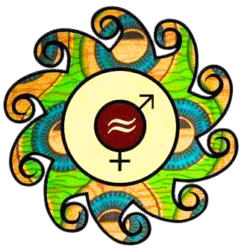Subtotal KSh 0.00
Climate Change and Adaptation by HFAW
Climate change continues to disproportionately affect marginalized communities across Kenya, particularly women and girls in rural and semi-arid regions and those living with disabilities. The Hope Foundation for African Women (HFAW) has integrated climate resilience and adaptation strategies into its core community empowerment programs in Nyamira, Kisii, and Kajiado counties. These interventions are gender-responsive, community-led, and focused on enhancing the capacity of women to mitigate, adapt to, and recover from climate-induced challenges.
Since 2014, HFAW provided interest-free microloans via Kiva, totaling around $35,000, with excellent repayment rates of 94%. Loan recipients have used this support to launch a variety of small enterprises, including horticultural production (e.g. smart vegetable gardening), dairy farming, poultry and rabbit rearing. HFAW continually encourages smart vegetable farming by women who are FGM survivors through techniques like composting, intercropping, organic pest controls, crop rotation, and keyhole/portable gardens to cope with erratic rainfall while adapting to the unpredictable climate changes.
Kenya is experiencing increasing climate variability—droughts, floods, irregular rainfall, and heatwaves—that threaten food security, water access, health outcomes, and livelihoods. Women and girls in rural areas are particularly vulnerable due to structural inequalities in land ownership, access to credit, education, and health services.
Kajiado County is a semi-arid region prone to drought and water scarcity. Nyamira and Kisii Counties, though more fertile, face erratic rainfall, soil degradation, and declining agricultural productivity. These environmental shifts significantly affect women, who are primarily responsible for food production, water collection, and caregiving. HFAW recognizes the intersection between gender, climate, and development, and has taken deliberate steps to integrate climate adaptation across its programming.
HFAW’s Climate Adaptation Interventions
Guided by community engagement, gender equity, sustainability, and resilience building, HFAW implements adaptation work under four key pillars:
Climate-Smart Agriculture and Livelihoods
- Training women farmers on drought-resistant crops, organic farming, agroecology, and regenerative agriculture techniques.
- Promotion of kitchen gardens and permaculture practices to improve household food security.
- Support for women-led agri-business cooperatives, especially targeting survivors of FGM and GBV.
Health, SRHR, and Climate Resilience
- Integration of climate-linked health education within HFAW’s SRHR programs.
- Outreach programs for girls and women on menstrual hygiene, maternal health, and climate-induced diseases.
- Mental health and psychosocial support for women impacted by climate-driven displacement or gender-based violence.
Policy Engagement and Community Advocacy
- Supporting women’s participation in county-level climate adaptation planning (e.g., FLLoCA initiative).
- Community forums to raise awareness on climate justice, gender equity, and environmental rights.
- Capacity-building for grassroots women leaders and CHVs as climate resilience champions.
Impact Stories
From Vulnerability to Leadership – Kajiado County
Sarah, a woman living with a disability, used to depend entirely on relief food during drought. Through HFAW’s climate and SRHR program, she was trained in container farming and water harvesting. Today, Sarah grows vegetables for her family and sells surplus produce in her local market. She now leads a group that advocates for inclusion of persons with disabilities in local climate planning.
Greener Schools, Empowered Girls – Nyamira County
At Nyakeore Primary School, girls faced absenteeism due to water shortages and poor hygiene. After HFAW installed a rainwater harvesting tank and provided environmental education, the school now reports improved hygiene, higher attendance, and new student-led tree planting initiatives.
Challenges
- Limited funding for climate-specific interventions, especially for marginalized women and women with disabilities
- Cultural barriers to women’s participation in land, water, and environmental decisions
- Climate literacy gaps among rural communities, limiting adaptive capacity
Strategic Partnerships
- County Governments (Kajiado, Kisii, Nyamira)
- Ministries of Health, Environment, and Gender
- Local CBOs and women’s groups
- International NGOs and UN agencies
By empowering women, promoting sustainable livelihoods, and integrating health, HFAW is building resilient communities that can adapt and thrive in the face of climate challenges.
We invite donors, development partners, and climate allies to join us in scaling these impactful, locally-rooted solutions that center women as leaders of change.
“Investing in women’s climate resilience is investing in community survival and sustainability.”
